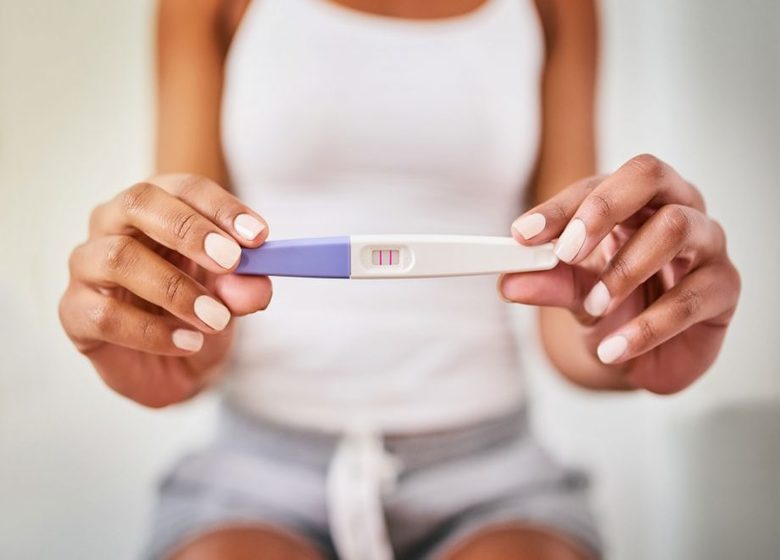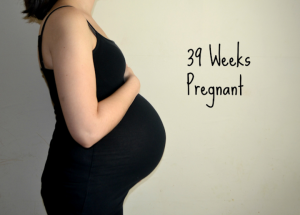1 week pregnant: What to Expect?
You need to forget everything you’ve heard about that moment when you find out you’re pregnant.
Each time you get your period, your body prepares itself for a potential pregnancy. A lot of complex hormonal changes will go on in your body, in readiness to support fertilisation in case it happens anytime soon. This is the reason why we count the first day of a woman’s period as a starting point for the countdown towards the expected date when the baby is actually due. Although it may seem to not make any sense but including the first 2 weeks is a standard practice.
In most women, monthly cycles are variable. Therefore, as a result, when you miss your cycle for the first time, you may not even realize that you are pregnant. Many women have spoken about how they don’t realize that they are pregnant even in the 2nd week of pregnancy and it is completely normal. The first week of pregnancy is comparatively smooth without any obvious signs of pregnancy. Then how would one know about it? That is exactly what our article will brief you on!
Week 1 – Baby’s Growth
During the first week of pregnancy, the egg moves from the ovary and travels through the fallopian tube. So you don’t see any significant growth in your baby in the first week. In the first week, the doctor calculates the first day of your last monthly menstrual cycle and it is from this day that your nine month (or 40 weeks pregnancy) term is then calculated. This is why the 1st week is also included in the pregnancy calendar and is important.
There is no actual major development in the baby during this first week. During this week the baby is called the blastocyte. The blastocyte is divided into two parts, the external part of which will become the placenta and the inner part will become the embryo during the 2nd week of your pregnancy. In cases, where more than one egg gets fertilized, multiple zygotes are formed. These zygotes carry 46 chromosomes from both the parents and these chromosomes determine the baby’s sex and other physical features. Now isn’t that interesting? Or maybe overwhelming!
Week 1 – Size of the baby
There is no detectable baby size in the first week of pregnancy. You may wonder “why?”. Well, it is because you are only technically pregnant during the first week. The first week is included in the pregnancy calendar basically because it’s basis the 1st day of your last menstrual cycle that the doctor predicts the EDD, which is the expected due date of the arrival of your little one. Hence, there is no baby size to know in this 1st week.
Week 1 – Common Body Changes/symptoms
You will be able to notice some minor body changes from the first week of pregnancy. These changes are although minor, but they are pretty good indicators of the “good news”. These discomfort occur due to the hormonal changes taking place in the body. Though the body changes during pregnancy vary in every women but we can list out some common changes that you may experience in your very first week of pregnancy. Tender breasts. Changes like:
- Mood swings
- Exhaustion
- Constipation
- Gas formation in the stomach
- Morning sickness
- Vaginal bleeding (as your body sheds the uterine lining which discards last month’s fertilized eggs)
- Lower back pain and cramps
- Bloating
- Tender breasts
Your belly at 1 Week of Pregnancy
In the first week of pregnancy, your body sheds the uterine lining with the last month’s egg and starts forming a uterine lining to hold and protect the next month’s egg. The egg that may grow into a foetus. But this will not show up on your belly in the first week of the pregnancy. This is because your body will release the egg 14 days before the next expected cycle and it will take another 24 hours for the egg to get fertilised. Hence there would be no signs on your belly in this first week time.
1 Week – Pregnancy ultrasound
For normal cases of pregnancies, usually there is no ultrasound done in the first week. In case, you are going through some treatment to get pregnant then your doctor may advise you to do an ultrasound in the 1st week. It is to check for fibroids and follicles in the ovary. The ultrasound will also determine the thickness of your uterine lining.
New diet for pregnancy
It is better to start eating healthy if you are trying to get pregnant. You must consume extra protein and calcium for the needs of the growing foetus during your pregnancy. For your 1st week pregnancy food, you must include a lot of dairy products, legumes, sweet potatoes, salmon, eggs, broccoli and dark leafy vegetables, lean meat, fish liver oil, berries, whole grains, avocado and lots of water. Basically you have to load your meals up with food that will supply folate, zinc, calcium, iron, and fiber to your body. In case you are unable to get these five critical nutrients from the food you eat then you may just pop in a supplement or a prenatal vitamin, but only after consulting your doctor. Healthier YOU means a healthy Baby!
Tips & Care
It is the first week of your pregnancy and so the joy will obviously follow and maybe a little anticipation too. Although, it is normal to be in this moment and enjoy it as you gulp the fact that you will have a new member in your family soon, there are a few tips that you must be attentive towards for a healthy way all along.
The Do’s and don’ts:
- Consult an Ob-Gyn the moment you realize you are pregnant, to understand all about genetic diseases and the risk of environmental hazards.
- You can start the intake of prenatal vitamin with 400 mcg folic acids every day BUT only after the consultation of your doctor.
- Bring all the necessary change in your lifestyle and eating habits (BUT only after consultation of your doctor).
- You must stop drinking, smoking or intake any drugs IMMEDIATELY.
- Make sure you don’t take any medicines for any illness without consulting your doctor.
- If you are already on medicines, you have to stop them right away and start taking them again only with your doctor’s permission.













